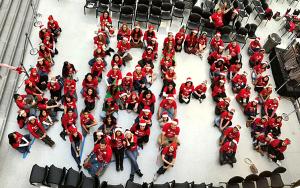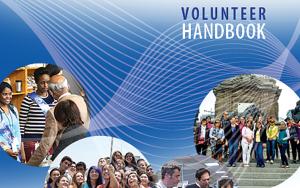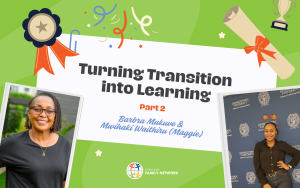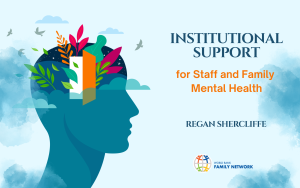
Scott and his spouse, who are Australian, relocated to Bangkok in 2018 with two teenagers. Their son is sixteen and their daughter is thirteen. Prior to this move they raised their children in Washington DC for twelve years, and before that they were in Phnom Penh, Cambodia, for three years.
In Washington, Scott’s children had been following the International Baccalaureate (IB) programs for elementary and middle school, which they have continued to do in Bangkok. Below, Scott talks about relocation and the school experience for teenagers.
Before relocation:
As soon as the relocation was confirmed by the WBG, I started to investigate schools. This was a priority for me, as previous experience had taught me that entrance to schools is often competitive and applications need to be completed as early as possible. (In fact, just after they were accepted there was a waitlist, so we were lucky.)
I did the research myself. But I also connected with WBFN members in Bangkok, which was a tremendous resource to find out what schools were really like there.
We wanted a good international IB school with a solid history of academic performance which would support our son to graduation. The school philosophy was very important to us as well. IB Schools often have a philosophy of inclusiveness, openness, and inquisitiveness; they work within global contexts, helping students understand different languages and cultures. Our daughter is very committed to equal rights issues especially those concerning civil, gender and LGBT rights. We wanted a school environment that provided opportunities for our children to voice opinions, support the community and express themselves. We had been very lucky that their previous schools in DC had been committed to providing rich experiences in awareness of social and global issues.
We also wanted a school to be close to where we would live—traffic and commutes are a big issue here in Bangkok. We both wanted to live in the city as we have always lived in an urban environment. The school we chose meets all these requirements. It has about 1000 students from Pre-K to Year 12.
After the kids were accepted, I reached out to the WBFN contacts again and joined the school FaceBook page, through which we were able to connect with families with girls my daughter’s age, who welcomed us to their homes for meals and conversation. This was wonderful as it gave my daughter the opportunity to get to know fellow students before she started school. My son chose not to make contact with other families—a difference between younger and more independent older teens, maybe?
The transition:
We took our children on the pre-assignment visit with us so they had a sense of their new environment and the culture. I think this was especially important because of their ages—they needed to be as involved as we were in the transition, even if they did not have the power to change the move. This also provided them with the opportunity to visit the school and be involved with choosing somewhere to live. The transition was relatively smooth for our daughter because she had already created connections and had been more open to the move.
For our son, it has been much more challenging. He really loved his school and friends in DC. In fact, we all felt that DC was very much home for us. He is very social and engaging so he has made friends quickly but it was still difficult and he was very angry. He returned to DC over Christmas and stayed with close friends which was a good way of reconnecting with his past life.
Relocating in the last two years of high school was not ideal and created a lot of challenges for him. I spoke to a number of friends and acquaintances who had moved internationally with teenagers. The feedback was that their kids were angry at the time, but that, in retrospect, the kids were grateful to have had the opportunity to experience a different country and culture.
Sports and extra-curricular activities:
Sports are available and both children are participating. It’s more difficult to join an existing sports team in an international school because most children have been part of an established team for several years. So, opportunities aren’t always available or suitable. This has been a little disappointing, especially for my son who was captain of his lacrosse team in DC. Lacrosse in Thailand is not played in the international schools.
My daughter is learning to play tennis and we are also fortunate to be able to provide her with private swimming lessons at home every week.
There is a wide variety of extracurricular activities, especially for my daughter. Older students generally focus on cultural and community organizations that they have set up.
Learning disabilities support:
We haven’t required any specific support, but there are plenty of resources available in Bangkok and the schools are also very supportive.
Languages:
Both of our children attended a Mandarin immersion school in DC and are continuing Mandarin in their new school. My son has started the IB diploma which is rigorous so he hasn’t taken lessons in Thai. But, I think he is developing a “survival” vocabulary with the help of friends!
Our daughter has just started some Thai classes at school which are built into the curriculum and she seems to be enjoying these classes at the moment.
Religion:
The school does not have a particular religious affiliation, but living in a predominately Buddhist country is a terrific experience for our children. We are helping them gain insight into the culture and religion here, as we think it is important to be open to completely new cultural experiences.
Mental health support:
They have counselors available at the school and are especially aware of the needs of children/teenagers who transition from different schools and countries.
Drugs and alcohol:
These issues are still very present and a great concern, especially for older teens. The school runs programs to increase awareness about the impact of drugs and alcohol, as in the US. They advise that random drug screens may be conducted with older students, which is an agreement signed by parents.
But it is very important, especially in a big city like Bangkok, to be open and talk frankly about the impact of drugs and alcohol on health, and particularly the harsh legal consequences in this country. Discussions like this have been important in our family in establishing behavioral expectations.
Social media:
My daughter’s year has a strict policy regarding the use of devices during school hours. Phones are banned during the school day and computer time is restricted.
My son is able to use all devices at school but students are encouraged to take responsibility for how they use them during the day. The school feels that as senior students move toward college they should accept more responsibility for themselves because this is what they will experience when they leave home to study at college.
College/university counselling:
The school is excellent and very supportive in this area. They have a well planned approach for our son and we have recently had a meeting with them . They explained the application process for the different countries we are looking at and how they guide and support students during the applications. The school encourages independence and responsibility in the application process. Our son will be applying to colleges in different countries in the next school year and we feel he, and we, will receive the support we need.
Parental involvement in the school:
In secondary school, parents are generally a little more removed from day to day involvement as the kids get more independent. I have always participated in my kids’ schools in various ways from field trip volunteer to a role on the parent association, and everything in between.
Parents are informed of changes and activities in the school. There are a number of opportunities to catch up with information at parent mornings, grade level activities and volunteer opportunities.
Security:
The school has comprehensive child safety policies in place, and Bangkok is generally safe for older children.
We don’t want to get over-confident, though. We try to moderate our kids’ independence with clear behavioral expectations and the need for open communication. We often discuss situations to avoid and how to deal with uncomfortable situations with other people, just as we used to do with them in Washington DC. But in a city like Bangkok, children often seem to have more freedom than in their home countries. This is true for our children too, but we also stress that we feel we should not become too complacent.
General reflections on relocating with teenagers:
Some negatives—
- there are aspects of life on relocation that are privileged, which is unrealistic compared to the kids’ home country setting
- for teenagers, there is a lack of workplace and internship opportunities, which prevents them from gaining practical experience
- our son cannot get a driver’s permit here, as his friends are doing in the US, because of age differences and traffic conditions
The positives—
- it provides an opportunity to receive an excellent international education
- I think it encourages more responsibility for their own learning because kids have to deal with and adapt to very different situations compared to in their home country
- it can give kids an exposure to a wide range of cultures; we travel a lot in the area, and of course, we are closer to our home country, Australia, which is a benefit
- the shared experience has bonded us more as a family in some ways, which I think is especially important in the teenage years






